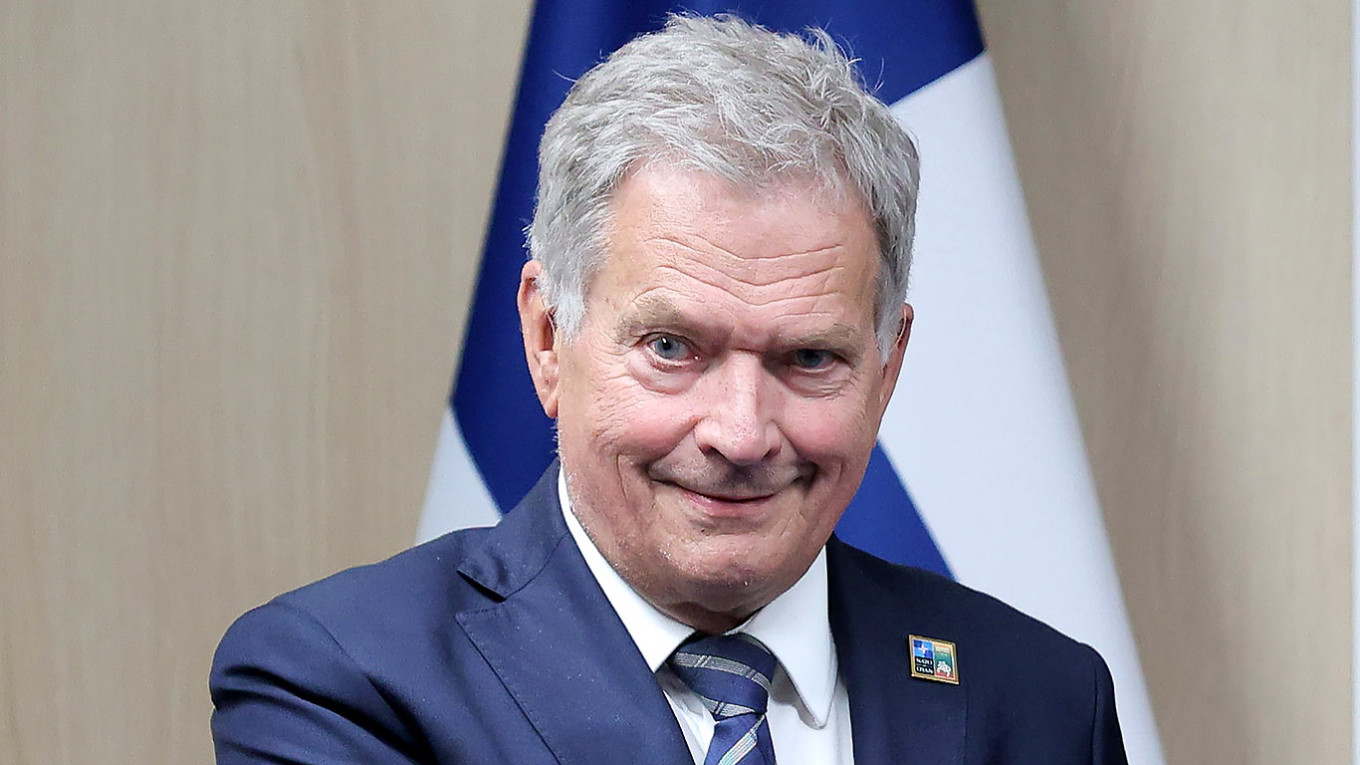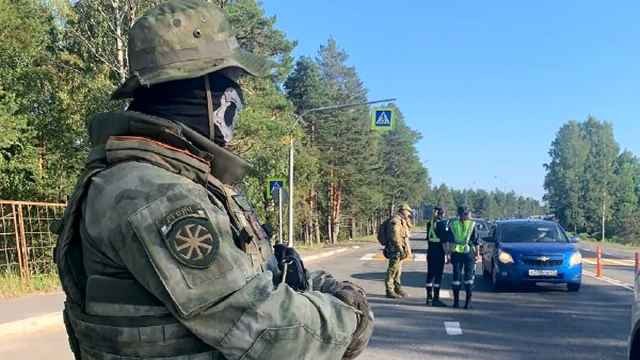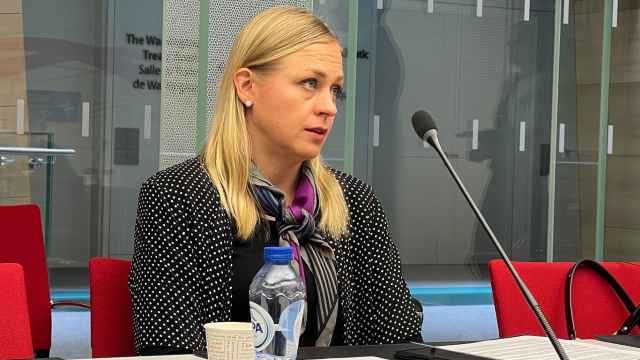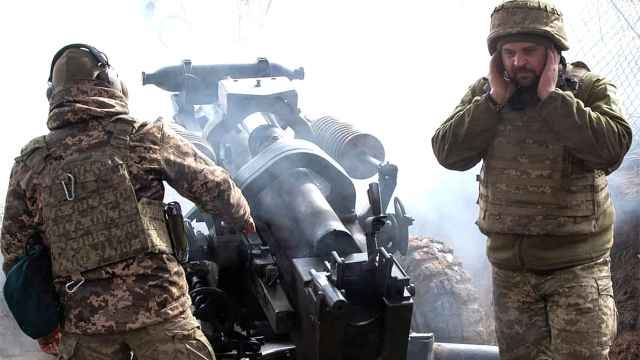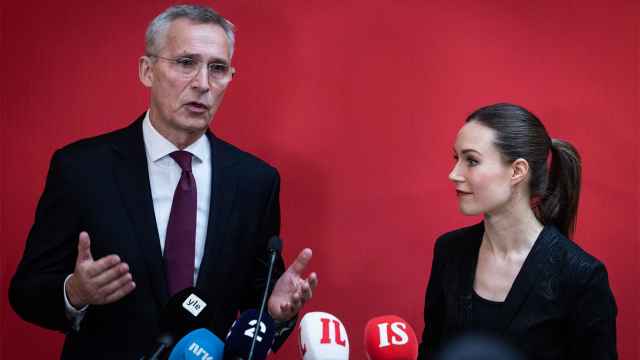LONDON — Former Finnish President Sauli Niinistö said he was “annoyed” that Europe is not playing a central role in efforts to engage the Kremlin in discussions on ending Russia’s war on Ukraine.
Niinstö, who left office in 2024, pointed to the heavy criticism that German Chancellor Olaf Scholz faced for calling President Vladimir Putin to discuss the war in November, his first conversation with the Russian leader in two years.
“But what about now? Trump is going to talk to Putin. Do we complain that Europe should be in those discussions? I find this a bit of a strange construction…we should be involved,” he said.
Speaking on a Chatham House panel about a report he compiled for the European Union, Niinistö also called on European countries to increase their citizens’ resilience against threats such as sabotage, disinformation and military aggression.
He pointed to Finland’s “comprehensive security” policy which encompasses the military, government, private sector and ordinary citizens as an example for other member states that have faced criticism for continuing to depend on the United States for security.
This month, NATO Secretary-General Mark Rutte called on the alliance to "shift to a wartime mindset” to prepare for “what is coming our way in four to five years” and said that the 2% of GDP defense spending target — which some states still do not meet — is too low.
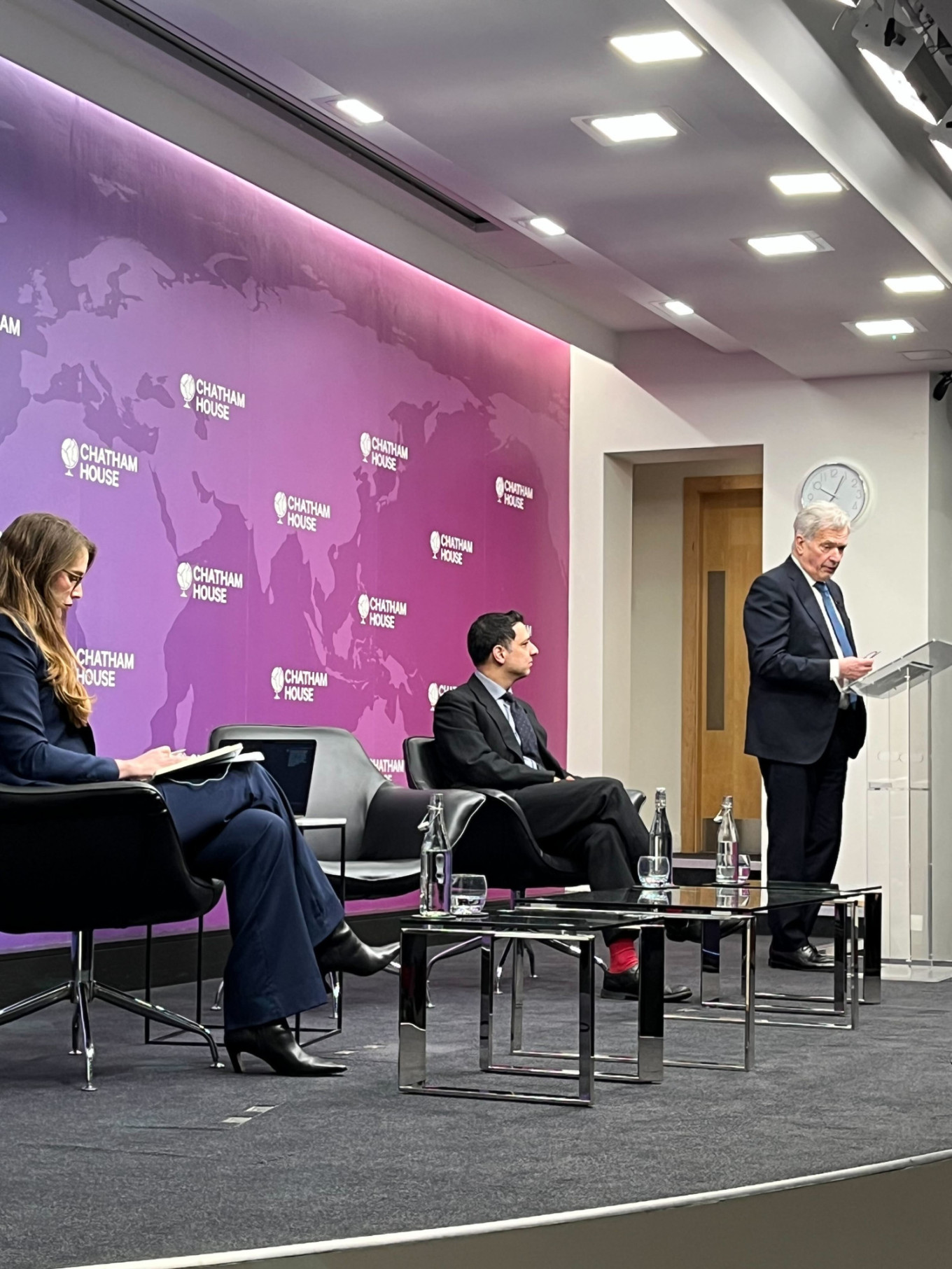
Part of Finland’s approach includes offering national defense courses to civilians, especially business leaders, to teach them about Helsinki’s foreign, security and defense policies.
Elizabeth Braw, a senior fellow at the Atlantic Council, said it was unlikely that other countries would be able to make a similar program available to everybody, but that the private sector would be essential for building a resilient population.
“I don’t think any company today would want to hire somebody who was not information literate,” she said. “That would be a good place to start. We will always have people in our society who fall for disinformation. But the fewer we have, the better it is.”
She also suggested that public libraries and trusted institutions could offer courses to teach people how to spot disinformation.
Niinistö said that Europe and its allies have historically been too slow to identify threats and attribute them.
“An example comes from Crimea in 2014 when we were all wondering ‘What are all those little green men walking around in Crimea?’ And after we found out what it was, they [Russia] had already invaded the peninsula,” he said.
Shashank Joshi, a visiting fellow and King’s College London and Defense Editor of The Economist, contrasted this with British Defense Secretary John Healey’s response to the detection of a Russian spy ship in British economic waters on Wednesday.
“I thought it was a very interesting example of signaling. It was attribution, saying ‘we know what you’re doing.’ It was clear. It was relatively calm,” Joshi said on the panel.
“I think that giving people a sense there are ways to handle the problem, as well as what the problem is, is part of [messaging to the public],” he said.
A Message from The Moscow Times:
Dear readers,
We are facing unprecedented challenges. Russia's Prosecutor General's Office has designated The Moscow Times as an "undesirable" organization, criminalizing our work and putting our staff at risk of prosecution. This follows our earlier unjust labeling as a "foreign agent."
These actions are direct attempts to silence independent journalism in Russia. The authorities claim our work "discredits the decisions of the Russian leadership." We see things differently: we strive to provide accurate, unbiased reporting on Russia.
We, the journalists of The Moscow Times, refuse to be silenced. But to continue our work, we need your help.
Your support, no matter how small, makes a world of difference. If you can, please support us monthly starting from just $2. It's quick to set up, and every contribution makes a significant impact.
By supporting The Moscow Times, you're defending open, independent journalism in the face of repression. Thank you for standing with us.
Remind me later.



